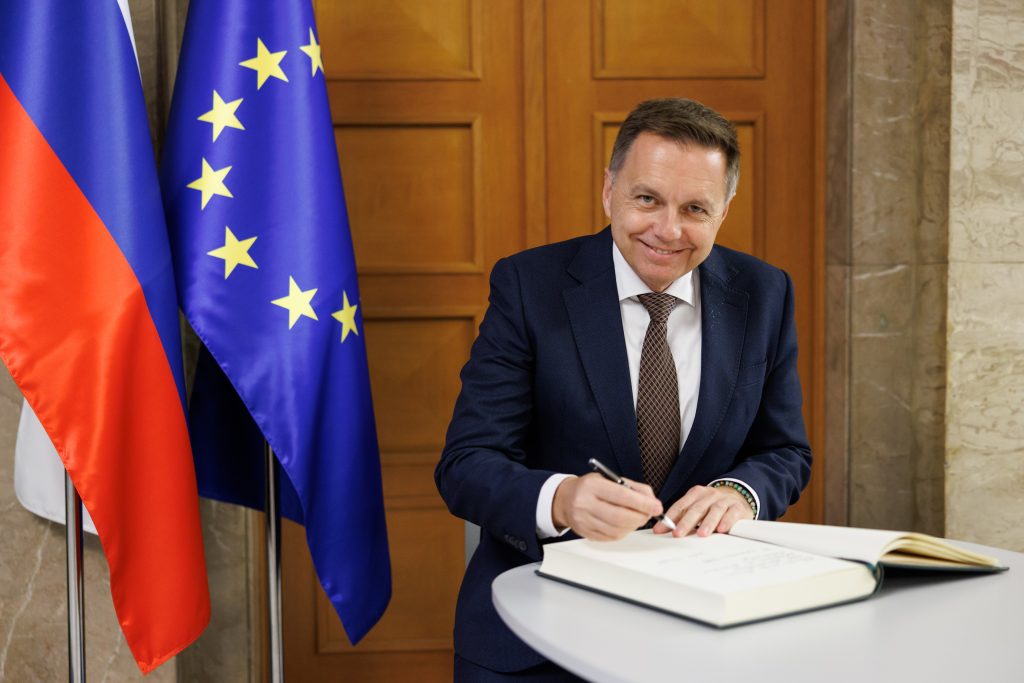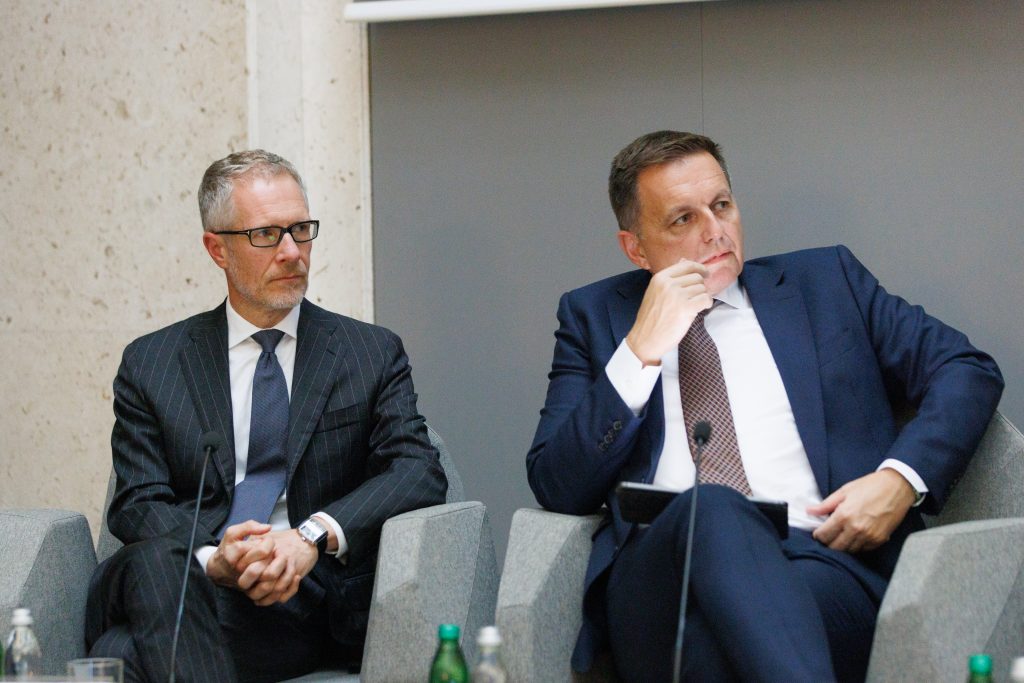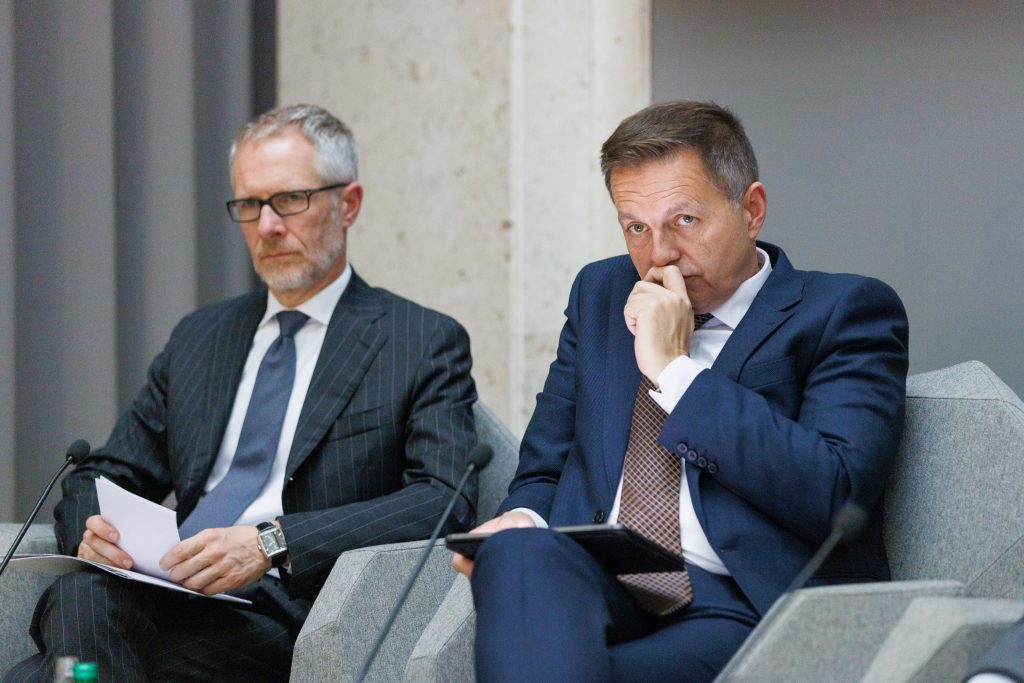Úvodné slovo guvernéra Petra Kažimíra na diskusnom podujatí Banka Slovenije
The life of a central banker in Europe, England, and the U.S. is currently complicated. I would stop short of saying we’re in inflation hell, but there’s a lot of heat out there.
Klaas Knot said it nicely in D.C. a couple of weeks ago … Monetary policy is currently more an art than science.
We used to be a wallflower at the party, and now we’re taking away the punch bowl without even a party in sight.
What can go wrong is going wrong…
On top of everything. Way too many cans are being kicked down the road, everywhere in Europe end up on our doorstep in Frankfurt.
Let me explain.

First, our job currently is to manage a persistent decline in living standards relative to expectations.
The immediate impact of the war in Ukraine on European households, businesses, and the economy is painful: rising energy and food prices coupled with increasing prospects of a recession.
At the same time, the situation in Europe is markedly different compared with the of the U.S.
Europe is a net importer of energy and food. So this crisis inevitably makes us poorer, at least in the short run.
The problem is that the scars are going last longer: de-globalization and friendshoring, as well as the lingering global political uncertainty, make the outlook worse than expected.
Right now, our post-pandemic optimism is waning.
In this environment, the best we can do is to ensure that demand in the economy adjusts to this uncertainty.
There’s a danger, in my view, that once the worst of the crisis is over, workers or firms will try to claw back on some of the losses suffered previously.
Governments may be slow to unwind support. Fast income growth or widening profit margins could prevent inflation from coming down to our goal.
We have to act preemptively in the circumstances with little reason to cheer.

Second, pretty much all the risks are currently pointing toward higher inflation.
I have already mentioned a few: future wage and profit pressures or de-globalization.
Add the green transition to the list in the medium and longer term.
There is also a lot in the current developments that we have yet to understand fully.
Isabel said last week that our economic models have limits in the current situation, and I couldn’t agree more.
Higher energy and input prices affect firm decisions in a way that is different from past patterns.
The result may well be more persistent inflation with even stronger second-round effects on wages.
Current government interventions in pricing decisions could also produce future inflation swings.
Last and definitely not least, we have to talk about fiscal policy.
The measures adopted at present are often far from the transitory and targeted interventions we would like to see. As a result, current fiscal behavior is, in my view, rapidly becoming an inflationary risk.
Future consolidation plans are not being spelled out. As a result, the forthcoming EU fiscal framework remains unclear.

Third, we at the ECB are European problem solvers of last resort.
The blessing and the curse of the ECB are that we can do timely and effective interventions to calm markets and restore trust in our economy.
The lack of a proper fiscal union and the lack of a proper banking union brings up issues almost daily.
We have been providing quick fixes for years. But, I am afraid our friends in European governments have gotten used to this.
Despite all the friendly calls for action, we remain the only game in town.
Offering patched-up solutions was easy for us when we supported our economy to survive the worst and fend off the risk of inflation staying way too low for far too long.
One could try to justify all kinds of interventions by the price stability mandate. So let’s not do that.
Supporting the economy and providing favourable financing conditions when necessary is one thing, and you can count on us. But even this carries all kinds of hidden subsidies.
We have now come to the end of the road.
Our price stability mandate requires us to reduce our presence in the markets and reduce our support to the economy. This will come. The sooner, the better.
It is absolutely vital for our credibility and the stability of the euro area that this becomes widely recognised.
Overall, the next few years will be an uphill struggle for us.
Accidentally, Running up the hill by Kate Bush is now back in rotation thanks to Netflix’s Stranger Things, so we have an anthem for this.
Národná banka Slovenska
oddelenie komunikácie
Imricha Karvaša 1, 813 25 Bratislava
Kontakt: press@nbs.sk
Šírenie je dovolené len s uvedením zdroja.